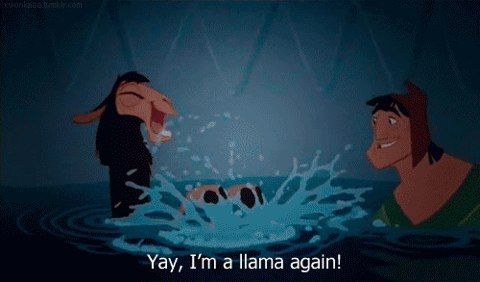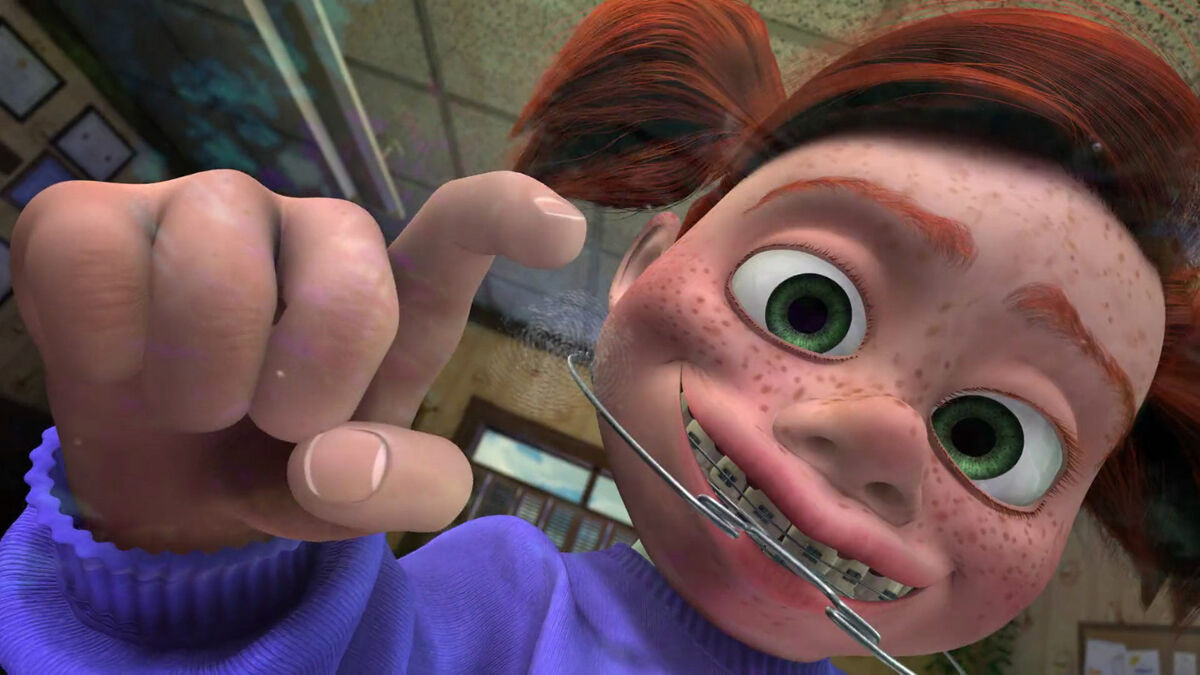
One of the things I respect about my father is his knack for appreciating a good kids’ movie. When I was growing up, he would watch classics such as Cars or Monsters, Inc. right alongside my brother and me, and honestly probably enjoyed them more than either of us did. Quotes (normally, particularly funny jokes or gags) from these movies became an integral part of daily life in our household, and I still reference many of them to this day.
“The laaaaaast melon…” - Unnamed Dodo, Ice Age
The thing is, describing movies such as The Emperor’s New Groove and Kung Fu Panda as “good movies” isn’t simply convention or some vestigial remnant from my childhood. They’re legitimately good movies, and they hold up well. However, in my (biased) opinion, the past decade has seen the unfortunate downfall of children’s movies from quality creations to corporate cash grabs.
 Remember this?
Remember this?
Apparently, releasing an actually good movie targeted toward kids is pretty difficult. Here are some of the things that children’s movies have to get right in order to be successful.
They have to be original
I recently read through a collection of ghost stories organized by famous children’s author Roald Dahl. In the foreword, he describes the difficulty of finding a good ghost story, and likens it to the difficulty of finding a good children’s novel:
“I am fairly sure that it is more difficult to write a fine and enduring children’s book than a fine and enduring novel. My reason for making this contentious statement is as follows. How many adult novels are written every year that will still be read widely twenty years later? Probably about half a dozen. How many children’s books are written every year that will still be read widely and avidly twenty years later? Possibly only one.” - Roald Dahl, Roald Dahl’s Book of Ghost Stories
I believe this argument can be extended to children’s movies as well. It is strikingly rare for a children’s movie to endure and become a classic. Admittedly, this is in part due to the fact that there are more adult movies produced than children’s movies, but the point remains. How many children’s movies from the past decade can you name that you will still discuss 10 years from now? Films like that are rare, and what these films have in common is that they are original. If a kids’ movie simply remakes another, successful movie, it won’t endure. Do you know how many animated movies about fish were released in the wake of Finding Nemo? A lot. I still only remember the original, though.
They have to teach a lesson (in a specific way)
Movies (and other forms of media) play an incredibly important role in the lives of young children. Once again, I borrow from Roald Dahl to explain the point better than I ever could:
“[As opposed to adult novels], children’s books must also divert and entertain, but they do something else at the same time. They actually teach a child the habit of reading. They teach him to be literate, they teach him vocabulary and nowadays they teach him that there can be better ways of passing the time than watching television.” - Roald Dahl, Roald Dahl’s Book of Ghost Stories
If we disregard the part of the quote about television (sorry, Roald), we can extrapolate a very powerful sentiment that rings true in the realm of film. As individuals, many of our core morals and beliefs originate in the media that we consume, and culturally relevant kids’ movies often create a widespread prescriptive environment of values that children uphold. These values can range across a breadth of levels, from micro-values to the macro. For example, consider the following: What is one behavior that is almost universally despised and simultaneously commonly done by children? Tapping hard on the glass of a fish tank. So, what did the writers of Finding Nemo do? They created a villain who performs that exact behavior, and clearly conveyed why it was harmful. This messaging wasn’t explicit - there was no post-credit scene saying “Remember, kids! Don’t tap on fish tanks.” Rather, the movie simply highlighted the perspective of the fish who are disoriented by such behavior. I am convinced that Finding Nemo singlehandedly reduced the amount of aquarium-tapping in dentist waiting rooms by a significant amount.

For a more morally-abstract example, the movie Cars subtly displays the consequences of egotistical behavior and shows the value of simple living.
It’s important that the moral values ingrained in a kids’ movie are communicated in a subtle manner. No child wants to do chores, no child wants to eat healthy food, and no child wants to feel like they are being lectured to. The best lessons are those that are naturally learned, and replicating this in a movie takes a certain charm. However, when it’s done correctly, a good movie can have an enduring and substantial impact on the lives of many children.
They have to fit within an appropriate source material
One of the difficult things about marketing media to children is that they can be very fickle consumers. I have very high regard for the film/screenplay 12 Angry Men; if you’re unfamiliar, the narrative concerns the murder trial of a teenager and the jury’s deliberations behind his eventual conviction or acquittal. The story is very dramatic and gripping, and is extremely well-written. Unfortunately, no child on the face of planet Earth is going to be interested in a movie of this nature. Watching 12 men sit around talk about law? Boooooorrrrriiinnnngg…
Unsurprisingly, most popular kids’ movies are set within some fantastic universe where the characters are all animals, or toys, or superheroes, or something else of a similar nature. When you come up with one of the original and moral plot devices previously mentioned, it’s not enough to simply craft a good story around it. The narrative has to be woven into a world that children will find interesting at surface level, which is presumably easier said than done. Think about The Lion King. The decision to set Hamlet in a world of animal life is ingenious, and communicates a classic story in a manner that is appealing to children. Honestly, this even works for adults. How many of us would rather have analyzed The Lion King than Hamlet in our high school English class? I know I would’ve. I wonder why The Lion King was so successful…
They have to be entertaining to both kids and adults
Let’s be real - the actual audience for kids’ movies is honestly the parents that are forced to watch them on repeat every Saturday. It’s important that these movies are legitimately entertaining and have rewatchability value.
Despite being fickle in some ways, kids are mostly an easy audience. As long as something cool is happening on-screen, it really doesn’t take much to keep them occupied. Adults, on the other hand, have all these silly expectations and considerations like “plot substance” and “dialogue” and other nonsense.
You know what movie I don’t think holds up? Disney’s Atlantis. I loved this movie as a kid: I would watch it over and over and I loved the big monsters and cool magic. A few years ago (when I was quarantined with COVID, actually), I decided to rewatch it for old time’s sake, and I still remember the feeling of stark disappointment I had at discovering how much worse it was than I remembered. The dialogue was cheesy, the plot was lackluster, and I wasn’t as entertained as I was as a kid. It just wasn’t very good!
Take Kung Fu Panda, on the other hand. I also loved this movie as a kid, yet still do now. So much so, in fact, that my high-school friends and I used to host a monthly Kung Fu Panda watch party where we would get together and enjoy the masterful performance of Jack Black. It’s funny, it’s relevant, and it’s entertaining. SKADOOSH!
Enjoyability for all ages is the property that allows a movie to really be classic. When we, as children, have beloved movies, it feels amazing when we can rewatch them as adults and still get the same enjoyment.
They have to be actually funny
Key to a movie’s rewatchability is its humor. If you look at the most critically-acclaimed kids’ movies, they all have one thing in common: the jokes are good. I wholeheartedly believe that The Emperor’s New Groove is funnier than most of the modern comedy films I’ve recently watched. Is there anything on this menu that isn’t swimming in gravy? Similarly, I was getting a tattoo a few days ago, and I was laughing out loud talking to the artist about some of the scenes from Monsters vs. Aliens.
One of the last movies I’ve seen in theaters was Kung Fu Panda 4, the most recent addition to the Kung Fu Panda series. Unfortunately, it did not live up to the standard of the first installments: I found it lackluster and unenjoyable. Why? Simply put: it wasn’t funny! Even though the plot was subpar, I would have walked out of the theater with a smile on my face if it had maintained the consistency and potency of the humor from the first movie, but it didn’t (the pacing of the dialogue was also weird, but that relates to a separate theory I have concerning children’s media and the shortening of the American attention span).
If a movie is only funny when you’re 7, it’s not good!
Modern children’s movies that I think are great
To provide a more positive perspective than I have been espousing, I think it apt to list some of the newly released kids’ movies that I think have been great.
- Big Hero 6 (2014) was a fun and action-packed story that also wrestles with grief in a compelling manner.
- Coco (2017) was very well-animated and memorable in its tribute to family and culture.
- Frozen (2013) has obviously seen much commercial success, and I think it is mostly deserved.
- The Lego Movie (2014) is a masterpiece. For kids, it is obviously very entertaining, but it also holds some satirical themes that adults can appreciate.
Anyway, there’s my take on kids’ movies. I’ve probably spent too much time watching them, but what can I say? That time was only wasted if the experience of watching the movies didn’t help grow me into the (obviously hilarious) human being I am today.